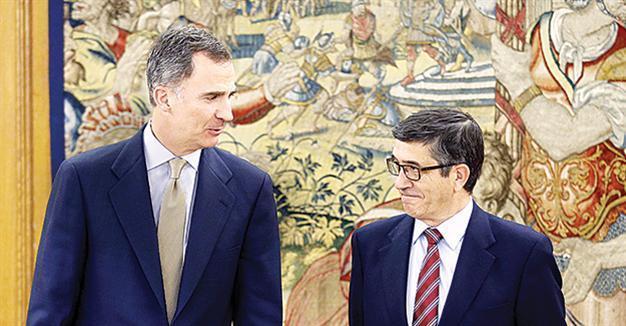Spain heads to new election after talks fail to form gov’t
MADRID - Associated Press

Spain’s King Felipe VI decided April 26 that none of the country’s political parties has enough support to form a government, setting the stage for an unprecedented repeat election in June, six months after voters ended the nation’s traditional two-party system.
Felipe announced his decision in a statement after spending two days meeting with party leaders - including those in charge of the conservative Popular Party, the center-left Socialists, the far-left Podemos party and the business-friendly Ciudadanos party.
His decision means that no party will be able to cobble together a minority or coalition government that would assume control of the 350-member lower house of Parliament by May 2, triggering a new election for June 26.
Spain has been politically paralyzed since its national election on Dec. 20, 2015 that saw the entry of Podemos and Ciudadanos as strong No. 3 and No. 4 parties following decades of alternating rule between the Popular Party and the Socialists.
The upstarts were voted in by Spaniards angry about years of high unemployment, seemingly endless corruption cases affecting the Popular Party and the Socialists plus unpopular austerity cuts hitting cherished national health care and public education.
Polls suggest a repeat election - a first for Spain since democracy was restored in 1978 - is unlikely to break the stalemate and could mean a political impasse stretching into the summer, possibly ending with yet another election.
Spain has never had a coalition government at the national level. The Socialists rejected Rajoy’s proposal for a grand coalition similar to those that have been negotiated in many other European countries.
Analysts predict that Rajoy’s party, known as the PP, will again take 1st place in the June election but remain incapable of getting the votes it needs to win back the parliamentary majority it enjoyed from 2011-2015.
The Socialists came in second, Podemos took third place, Cuidadanos was fourth and a handful of small parties also won seats in the 350-member lower house of Parliament.
The breakdown of legislative seats made it crucial for the parties for the first time in Spain’s history to negotiate alliances for a coalition or form a minority government, but they were incapable of doing so despite months of negotiations.
 Spain’s King Felipe VI decided April 26 that none of the country’s political parties has enough support to form a government, setting the stage for an unprecedented repeat election in June, six months after voters ended the nation’s traditional two-party system.
Spain’s King Felipe VI decided April 26 that none of the country’s political parties has enough support to form a government, setting the stage for an unprecedented repeat election in June, six months after voters ended the nation’s traditional two-party system.